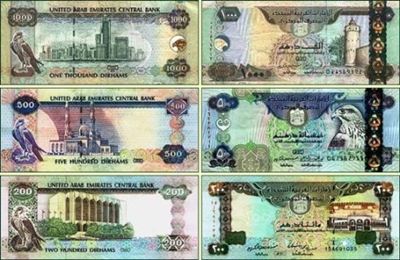better light a candle than curse the darkness |

Page-1
| Page-2
| Page-3
| Page-4
| Page-5
| Page-7 | Page-8 | Page-9
| Page-10  Download pdf (2.6 mb) Download pdf (2.6 mb)
|
better light a candle than curse the darkness |

Page-1
| Page-2
| Page-3
| Page-4
| Page-5
| Page-7 | Page-8 | Page-9
| Page-10  Download pdf (2.6 mb) Download pdf (2.6 mb)
|
| Learn
Islamic Finance
Principles of Islamic
Finance
- Sharjeel Ahmad (sharjeel.ahmad@gmail.com) Islamic Finance appears a very murky subject to study, and is often clouded with a lot of ignorance. A very interesting aspect of this domain is that it was hitherto being believed that practical implementation of this concept is very difficult. Almost all these speculations result due to ignorance of people with respect to the concepts of Islamic finance. People also feel that Islamic finance is something out of this world and is not congruent with the existing financial scenario. Through this column, we try to look at these aspects and in turn, learn about Islamic finance in a more practical and objective way. Let’s start by looking at the concept of Islamic banking and finance from the conventional banking and finance domain. In a conventional banking setup, a bank or financial institution generates funds and invests in some activities and gains profit or incurs losses. It further distributes the returns to its customers who have contributed in generating the funds for investment. Consider the three concepts of i) generating funds, ii) investing, and iii) distributing the returns. An Islamic bank or financial institution would work exactly the same way: generating funds, investing, and distributing returns to its customers. However, an Islamic bank/financial institution would differ from conventional banks/financial institutions: in what sense would it differ is what we look at first in this introductory module. We need to reckon these differences to be able to comprehend and analyze how Islamic banking/finance can be implemented in the present day scenario. Before we explore the differences; though, let’s first look at the basic principles or building blocks of Islamic banking/finance. After we have this knowledge of the principles of Islamic banking/finance, it would become easier for us to comprehend the differences. Even before we look at these principles, we need to look at the sources from where we acquire the information related to Islamic banking and finance. As the name itself suggests, Islamic banking/finance finds its origin and source in the Quran, which is a comprehensive dossier describing how a practicing believer (Muslim) must conduct himself/herself with respect to this world and the Hereafter. Another important source of information is the Hadiths, or the Prophetic Traditions. Based on these two primary sources, the Islamic law or Sharia is reckoned. Sharia or Islamic law can be broadly divided into categories, Ibaadat or worship, and Muamlaat or transactions. Islamic finance comes under the category of Muamlaat or transactions. As per the conventions, this category of Sharia law allows whatever is not prohibited. Consequently and as a corollary, any investment that is NOT PROHIBITTED is allowed as per Sharia. Let’s now look at the guiding principles on which Islamic banking/finance is based upon:

|

We conclude the first module of our discourse on principles of Islamic finance here. In the next issues, we would explore each of these principles in detail, Insha Allah. Questions and problems related to this module can be addressed to edit@financeislamicus.com Please tag the subject line with “Learn Islamic Finance” and mention the respective issue while writing to us. This article has been published by Finance Islamicus [Vol. I No. 2 :: March-April, 2010], a Bi-Monthly newsletter on Islamic Finance published by the Finance Islamicus Group – http://www.financeislamicus.com. For any comments/suggestions/feedback, please contact the editor of the newsletter at edit@financeislamicus.com or feedback@financeislamicus.com  |
Copyright
© 2008 Bihar Anjuman
|